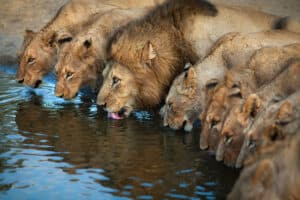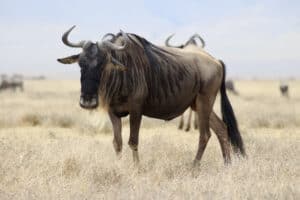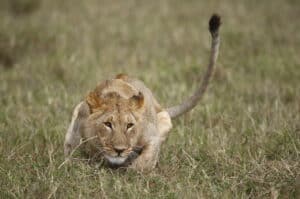Continue reading for our analysis...
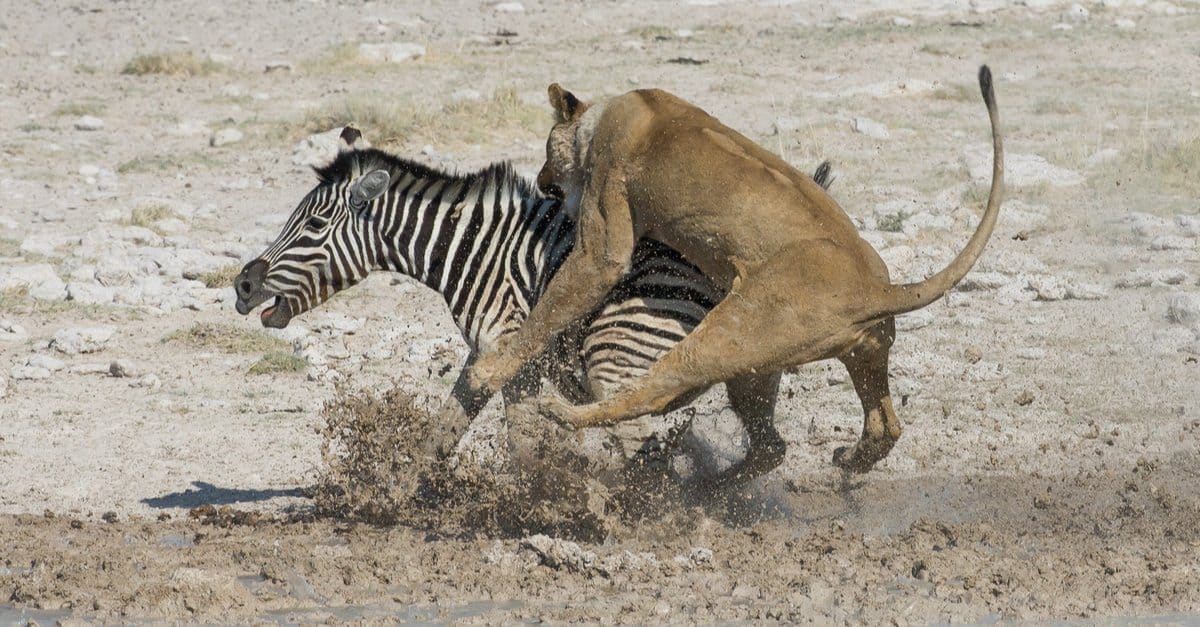
At the start of this clip, it looks like it is already all over for a stricken zebra. Its neck is firmly clamped in a lion’s jaws, and it seems like it is now just a matter of time before the big cat gets a meal. But never underestimate the determination and tenacity of a zebra! As it struggles to stay on its feet, the herbivore twists around, making it harder for the lion to maintain its grasp. Then, in a genius move, it manages to twist the lion so that it is on its back. This gives the zebra the advantage and leverage it needs to escape. As the lion tires, the zebra gives one final twist and escapes from the jaws of death. As the striped survivor races away, the lion is left disappointed and hungry but too tired to give chase!
What Do Lions Normally Eat?
Lions are carnivores and have to hunt animals such as zebras to stay alive. They need a constant supply of animal protein to stay healthy, but that takes a lot of hunting! In Africa, lions are capable of hunting a wide variety of prey. However, each type of prey requires a precise set of skills to catch it. Therefore, lions tend to become experts at catching just one or two of the most abundant prey species in their ecosystems. This means that some lions are experts at catching zebra and warthog, whilst others are better at catching impala and buffalo. In between large kills, lions supplement their diet with smaller meals, including birds, fish, and reptiles. They will also eat insects if they come across them.
How Do Lions Normally Hunt?
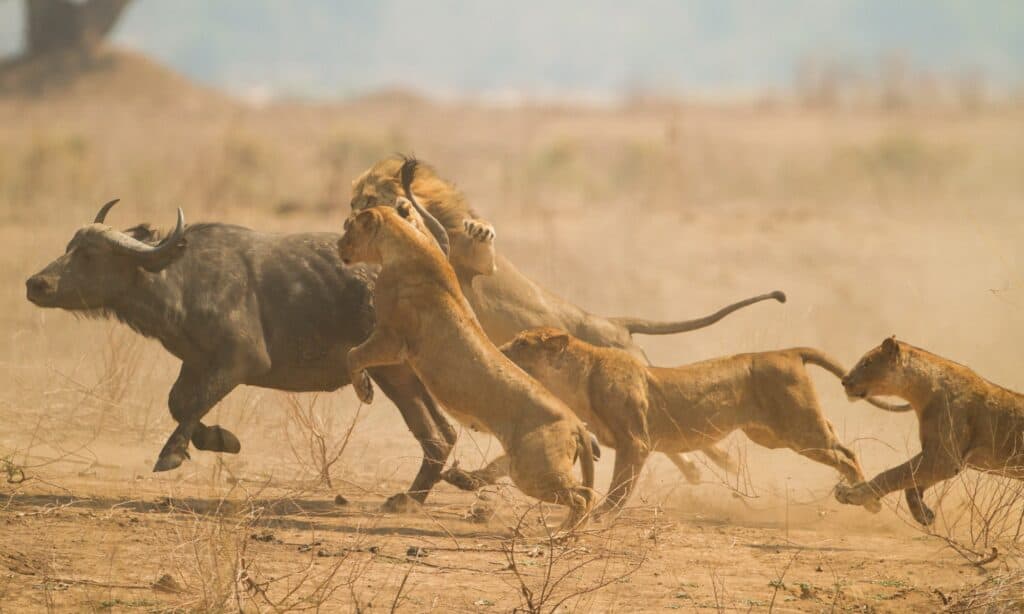
Lions have more success when they hunt as a pride.
©iStock.com/jez_bennett
Lions often hunt as a group called a pride, but the lion in this clip seems to be alone. If an entire pride had tackled this zebra, their chances of success would have been higher. The downside is that there would be more mouths to feed. When lions hunt alone, their success rate can be as low as 15 percent.
As you can see here, it uses a lot of energy to catch prey like zebras. These animals may be herbivores but they do not give up easily and have a lot of determination.
Lions try to subdue their prey by biting their neck and dragging them to the ground. The plan is to suffocate the prey by crushing the trachea (windpipe). Lions can hold on like this for as long as 10 minutes but, as you can see in this clip, they eventually get tired.
Thank you for reading! Have some feedback for us? Contact the AZ Animals editorial team.



